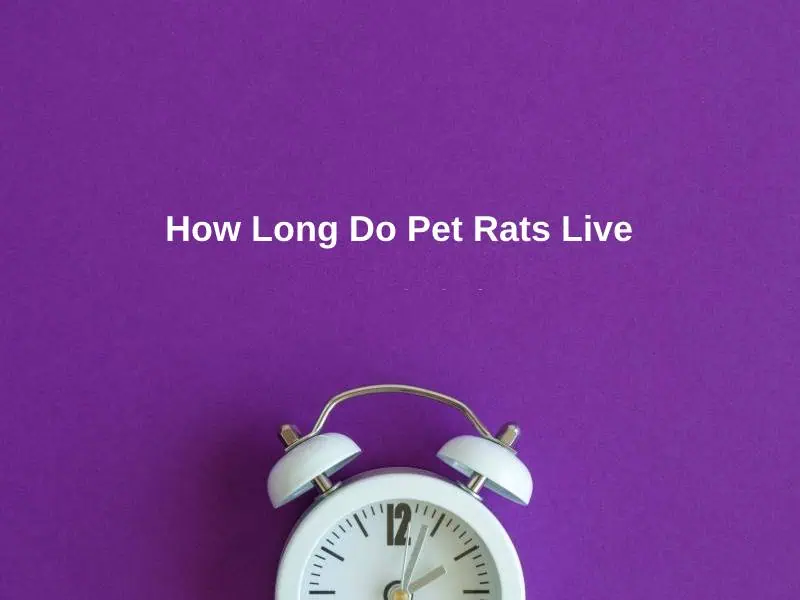Exact Answer: 2 To 3 Years
Pet rats, or also known as domestic rats and fancy rats are the most common domestic type of rats kept as pets in normal households. They are normally sold in pet stores and by breeders. Pet rats are found in several coat colors and patterns. Sold at a very cheap price and with low maintenance expenditure on pet rats, this animal makes itself a quite favorable pet to keep at home.
Moreover, the pet rats are easy to keep, don’t need much space, or care. Above that, pet rats are considered loyal and smarter than other domesticated rodents.

How Long Do Pet Rats Live?
Pet rats have a shorter lifespan as compared to other pets like dogs, cats, and other such pets. On average, all rat pets have a life expectancy of about 2 to 3 years only. However, many rat experts have claimed and have proved scientifically that there are some rare cases in which the lifespan of the pet rats can be as long as 4 to 5 years.
To your surprise, it is interesting to know that in the early decades when these fancy rats shifted from pests to pets, their life expectancy was just about 1.5 to 2 years. It was occasionally and in fact in rare cases when these pet rats would live for up to 3 years. However, with advancements in veterinary medicine and veterinary science, scientists found out suitable conditions for pet rats to survive for a longer duration of time. Moreover, with developed and improved knowledge about appropriate rat care, good feeding habits, and all other survival situations, the average lifespan of the pet rats gradually increased from 2 years to about 3 years.
Pet rats are not more vulnerable to survival problems like predators and food shortages. When taken proper care of, kept in a safe place, provided suitable shelter, a healthy diet, and an attentive owner, they can easily live up to 3 years.
| Phases In A Lifecycle Of Pet Rats | Time |
| Newborn | 1 month |
| 4 weeks phase | 4 week |
| Adulthood | 1 year |
| Above one year | 1 to 2 years |
Why Do Pet Rats Live That Long?
It is important to make sure that you are choosing a healthy pet for making it as a pet. Moreover, if you want your pet rat to live up to its complete life expectancy, then you should provide proper care and good nutrition.
However, it is important to know the lifecycle of a pet rat if you want to deeply know and understand why pet rats live that long. The life cycle of pet rats includes 4 stages, that is, newborn phase, 4 weeks phase, 1-year phase, and over one year phase.
The very first phase in the life cycle of the pet rat is the newborn phase. Newborn pet rats are quite small and surprisingly, blind. These newborn pet rats need extra care and need to be under supervision every time. Else there is a great probability that many pet rats are likely to die in their newborn phase only. The newborn phase is about 1 month long. After about 5 days, the newborn pet rats begin to crawl and after about 2 weeks, they open their eyes.
The second phase is the 4 weeks phase. By this time, the pet rats are no longer dependent on their mother. They become fully attentive and capable enough to feed on their own.
The third phase in the life cycle of the pet rat is the one-year phase. This is the time when pet rats can be called adults and this phase is also known as the adulthood phase.
The last phase is the over one-year phase when the pet rats become completely independent. They are completely developed, playful, and easy to train as well.
Conclusion
An average pet rat can live up to 2 to 3 years if healthy, provided needed care and other essential needs like food and shelter. Although, it is important to make sure that these pet rats have equal health risks as compared to other domestic pets. If not taken care of or provided the needed diagnosis for their health problems, there is a big probability that these pet rats will succumb to death due to several prominent illnesses.